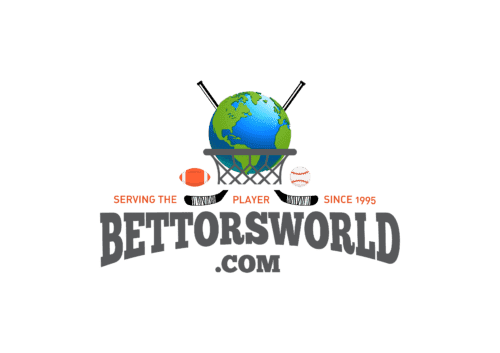Theory in Sportsbetting
A few months ago, right before the Al Pacino/Matthew McCohnehey sports tout film “Two For the Money’ was released, a friend asked me if I thought that it would do for sports gambling what “Rounders” did for poker. Without having seen the film, I said “no” and since it died a quick death at the box office no one asked me about it again. It did start me thinking, however, about the insane popularity of poker relative to sports betting. Clearly, sports betting is a popular pursuit but it pales in comparison to the mania surrounding poker. Poker’s popularity is due to a coNFLuence of factors, but none more important than the widespread availibity of sound theoretical information. In other words, its easy for new poker players who want to learn how to play the Game the right way to find information that will allow them to do just that.
Contrast this with my experience when I was first starting out as a sports better nearly 20 years ago. While I never was hoodwinked by the ridiculous claims of the boiler room touts, I wanted to find something to read that would set me on the right path in my new discipline. I was amazed by the paucity of books dealing with sports betting on any serious level. I found plenty of books on horse handicapping, but couldn’t find anything on sports betting aside from some very simplistic introductions that explained what point spreads were, why you had to lay 11/10 on a bet, and so forth. I was living in Portland, Oregon at the time which may have more book stores than any city in the country. I spent hOurs looking through bookstores, new and used, trying to find anything that would help me educate myself. Finally, I came across a copy of Art Mantaris’ book “Superbookie”, which provided an introduction to the world of Las Vegas sports gambling. It had it’s faults, but it was a start.
Nearly twenty years later, the sports betting world has changed drastically. Las Vegas is no longer the center of the sports gambling world, offshore books are ubiquitous, and the growth in consumer technology and the Internet has leveled the information playing field between player and bookmaker. Still, its very difficult to find any serious theoretical discussion of sports handicapping and betting. There’s a few things out there now that weren’t available when I was starting out–Kevin O’Neill, for example, has written several excellent books that deal with sports handicapping in a serious manner–but the theoretical literature on the topic is still extremely sparse.
Here’s something you can do that will illustrate what I’m talking about–go into your local Barnes and Noble and take a look at the gambling books. You’ll find a shelf devoted to horse racing, and probably an entire rack devoted to poker. You’ll find a few books on slot MAChines, video poker and blackjack. You may even find a couple of books that promise to help you pick lottery winners, a dubious concept if ever there was one. What you won’t find is more than a couple of sports betting books.
So how does this impact the popularity of sports betting? Consider, by way of contrast, a young man who’s watched the World Poker TOur on TV, played in some Games with friends and now wants to approach it seriously. He can go to any bookstore in the country and pick up books that will give him the basics and beyond–he’ll quickly learn about how to grade his starting hands, pot odds, reading opposing player’s “tells”, managing his bankroll, and various strategies specific to Texas Hold’Em, Seven Card Stud, Omaha and other Games. His theoretical learning is limited only by his ambition as he pOurs through books by Mike Caro, Doyle Brunson, TJ Cloutier, David Sklansky, Mason Malmuth and so on. Indeed, his only real problem could be information “overkill” and trying to weed through competing strategic theories.
And where does a sports betting acolyte go as he searches for wisdom on his new avocation? First, he’ll have to survive the onslaught of the tout industry and their nonsense about “locks”, “Games of the year”, “100,000 star plays” and so forth. Assuming that he doesn’t take their advice and bet “everything he owns” on some mythical inside information play, he’ll hopefully realize quickly that these clowns no nothing about the realities of the sports betting discipline and even if they did, they’re not going to share it with him. Hopefully he’ll then pick up the Gold Sheet and start to learn about power ratings. The Gold Sheet is also good for an occasional theoretical article, and some of the other newsletters like Winning Points and Power Sweep. Obviously they’re more concerned with handicapping the specific Games on the Schedule, but a newbie sports bettor can learn from these sOurces if he pays attention. If he gets really ambitious, he can find some good books from the Gambler’s Book Club in Las Vegas–assuming he knows about the store. Other than that, the neophyte sports gambler hits a brick wall as he tries to learn about the discipline.
This is a bad thing not only for the would-be sports gambler, but for the business as a whole. The scarcity of theoretical information does nothing but underScorethe arguments who view the entire world of bookmakers and players as one big scam. It minimizes the challenges and opportunities that sports betting presents, and undermines the appreciation of those handicappers who are successful at turning a profit over the long haul. Overall, it helps perpetuate the anti-sports gambling bias inherent in the mainstream media and serves to marginalize a fascinating and challenging intellectual pursuit.
And perhaps the most frustrating thing about this mess is that it’s my fault. No my fault specifically, but the fault of the sports handicapping and information industry. In the effort to turn a quick buck with lies, hype and hot air they ignore the opportunity to educate players on the right way to approach the sports wagering discipline. Frankly, most of the so called “touts” out there couldn’t do this if they wanted to. And clearly they don’t want to, since they prey upon the “learned helplessness” of players who turn to them for “locks” and “bail out Games”. To be fair, a lot of players don’t want to learn the right way to play preferring instead to live in the fantasy world that the boiler room guys try to sell them. Still, the fact that the information is not there for the players who do want to learn is a massive failing of the sports information industry. It’s also limiting the growth and exposure of sports gambling and thus very counterproductive in the long run.
It’s a shame, since there’s so much to learn in this sports betting Game. Consider the volumes that have been written on poker–a Game with 52 cards and eight players. If so much ink can be devoted to poker, certainly sports betting–with countless more variables–deserves a similarly serious approach. In reality, serious sports betting has more in common with understanding and profiting from the financial markets than anything else. That’s why so many people who experience success in the stock market are able to translate it to sports betting, and why some of the best works on sports betting theory are in actuality financial books (I particularly recommend the “Market Wizards” series by Jack Schwager and “Trading for a Living” by Alexander Elder).
So I’ve decided to dedicate myself to filling some of the theoretical void in sports gambling. I’m in the process of writing a book on the subject, but in the meantime I’ll be writing a lot of theory articles for the Bettorsworld website.

